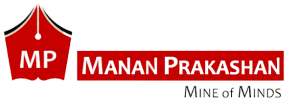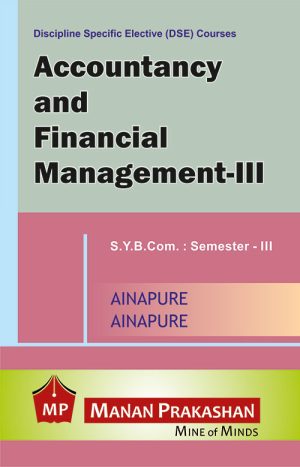Description
Information Technology in Business Management – II
SYBMS Semester IV
Syllabus
1. Management Information System (15 Lec.)
♦ Overview of MIS
Definition, Characteristics
♦ Subsystems of MIS (Activity and Functional subsystems)
♦ Structure of MIS
♦ Reasons for failure of MIS
♦ Understanding Major Functional Systems
Marketing & Sales Systems
Finance & Accounting Systems
Manufacturing & Production Systems
Human Resource Systems
Inventory Systems
♦ Sub systems, description and organizational levels
♦ Decision support system
Definition
Relationship with MIS
♦ Evolution of DSS, Characteristics, classification, objectives, components, applications of DSS
2. ERP/E-SCM/E-CRM (15 Lec.)
♦ Concepts of ERP
♦ Architecture of ERP
Generic modules of ERP
♦ Applications of ERP
♦ ERP Implementation Concepts
ERP lifecycle
♦ Concept of XRP (extended ERP)
♦ Features of Commercial ERP Software
Study of SAP, Oracle Apps, MS Dynamics NAV, Peoplesoft
♦ Concept of e-CRM
E-CRM Solutions and its advantages, How technology helps?
♦ CRM Capabilities and Customer Life Cycle
Privacy Issues and CRM
♦ Data Mining and CRM
CRM and workflow Automation
♦ Concept of E-SCM
Strategic advantages, benefits
E-SCM Components and Chain Architecture
♦ Major Trends in e-SCM
♦ Case Studies ERP/SCM/CRM
3. Introduction to Data Base and Data Warehouse (15 Lec.)
♦ Introduction to DBMS
Meaning of DBMS, Need for using DBMS. Concepts of tables, records, attributes, keys, integrity constraints, schema architecture, data independence.
♦ Data Warehousing and Data Mining
Concepts of Data Warehousing
Importance of data warehouse for an organization
Characteristics of Data Warehouse
Functions of Data Warehouse
Data Warehouse Architecture
Business use of data warehouse
Standard Reports and Queries
♦ Data Mining
The scope and the techniques used
♦ Business Applications of Data Warehousing and Data Mining
4. Outsourcing (15 Lec.)
♦ Introduction to Outsourcing
Meaning of Outsourcing
Need for outsourcing
Scope of Outsourcing
Outsourcing : IT and Business Processes
♦ Business Process Outsourcing (BPO)
Introduction
♦ BPO Vendors
How does BPO Work?
BPO Service Scope
Benefits of BPO
BPO and IT Services
Project Management approach in BPO
BPO and IT-enabled Services
♦ BPO Business Model
Strategy for Business Process Outsourcing
Process of BPO
ITO Vs BPO
♦ BPO to KPO
Meaning of KPO
KPO vs BPO
KPO : Opportunity and Scope
KPO Challenges
KPO Indian Scenario
♦ Outsourcing in Cloud Environment
Cloud Computing Offerings
♦ Traditional Outsourcing Vs. Cloud Computing






Reviews
There are no reviews yet.